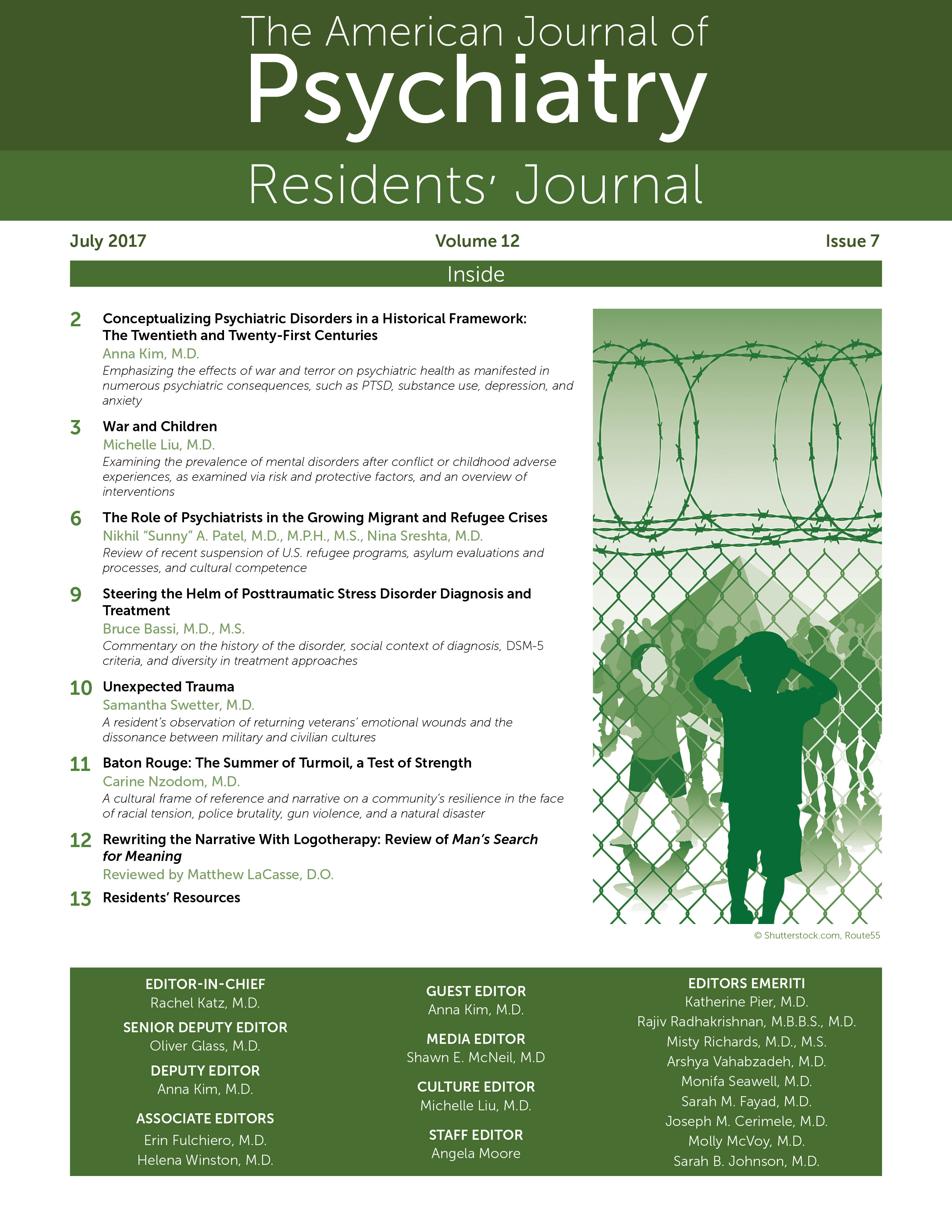Rewriting the Narrative With Logotherapy: Review of Man’s Search for Meaning

Viktor E. Frankl (1905–1997), an Austrian psychiatrist, is best known for his contribution of logotherapy. His most famous book, Man’s Search for Meaning, takes us through his torturous time spent in the concentration camps of World War II. Frankl walks us through times of terror, horror, and human suffering through the lens of his brilliantly formulated logotherapy. Not only is it inspiring and therapeutic for those who read it, but it is also a wonderful introduction to logotherapy, a tool that should be in every mental health professional’s tool box.
Frankl explains that logotherapy is a “meaning-centered” psychotherapy, and he writes that it “focuses on the meaning of human existence as well as on man’s search for such a meaning” (pp. 98–99). In Frankl’s logotherapy, the desire to find meaning in one’s life is the primary motivational force, contrasted with Freud’s drive for pleasure and Adler’s drive for superiority. Instead of focusing on the past, logotherapy is choice and future-oriented, accepting the inherent meaningfulness of life. Frankl explains that humans live and die for meaning and purpose, not merely to resolve conflicts or defenses.
Through logotherapy, one is able to attribute meaning to every aspect of life, including terror and pain. Frankl quotes Nietzsche: “He who has a why to live can bear almost any how ” (p. 104). This basic principle is particularly helpful for those who have experienced unavoidable trauma, as well as those facing existential crises. Finding meaning and purpose aids in calming the neuroses.
In their article published in the American Journal of Psychotherapy, Steven Southwick and colleagues (1) demonstrated the usefulness of logotherapy in combat veterans facing posttraumatic stress disorder (PTSD). They identified four main existential issues that PTSD sufferers often contend with, namely, a skewed external locus of control, a foreshortened sense of future, guilt and survivor guilt, and a loss of meaning and purpose. An example given is that of an ICU nurse who served in the Persian Gulf War. After returning from service, the nurse was tortured with impairments, stagnancy, and symptoms of PTSD. Using the logotherapy technique of dereflection (shifting emphasis away from problems, failures, and symptoms toward successes, goals, solutions, and empowerment [1, p. 170]), the veteran learned to take the residual effects and use them to his benefit. He used his memories as reminders of the need for caretakers. He learned that his expertise had heightened secondary to his caretaking experiences while at war, something few other nurses have. Extrapolating meaning from his experiences allowed for a deeper understanding of purpose and empowered him into action.
Although logotherapy has broad applications, Man’s Search for Meaning demonstrates most clearly its utility in the setting of trauma. In my career thus far, I have learned many treatment modalities, such as psychodynamic, cognitive-behavioral, exposure, hypnotic, and eye movement desensitization and reprocessing therapies, as well as many pharmacotherapies, for traumatized patients. Never have I discussed the role of logotherapy until reading Frankl’s account. Reading Man’s Search for Meaning has given me a new perspective on trauma, life, and therapy.
1. : Logotherapy as an adjunctive treatment for chronic combat-related PTSD: A meaning-based Intervention. Am J Psychother 2006; 60(2):161–174 Crossref, Google Scholar



